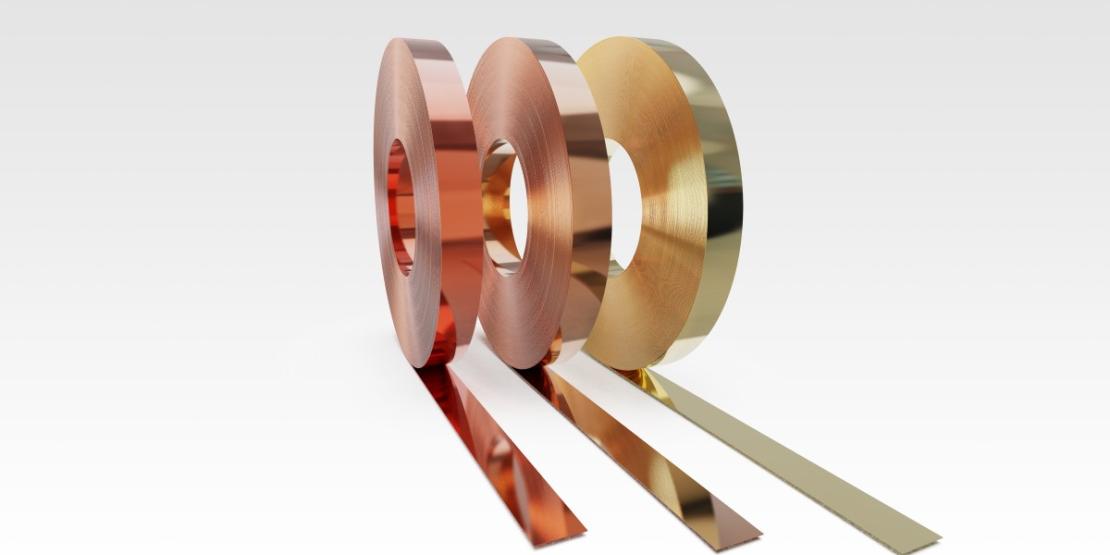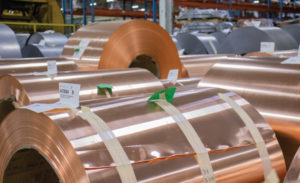Why Copper Products Are Vital for Electrical Applications and Reliable Electrical Wiring
Why Copper Products Are Vital for Electrical Applications and Reliable Electrical Wiring
Blog Article
Just How Copper Products Add To Lasting Practices in Numerous Sectors
In renewable energy systems, for example, copper boosts the functionality of solar and wind innovations, while its application in construction lessens waste via long life. As industries seek to adopt more lasting practices, the duty of copper can confirm essential in attaining environmental goals.
Copper in Renewable Energy
Copper plays an essential function in the innovation of renewable resource technologies, acting as a crucial conductor in numerous applications. Its outstanding electric conductivity and resistance to deterioration make it a suitable material for electric circuitry, which is crucial in solar panels, wind turbines, and power storage systems. In solar photovoltaic systems, copper is used in the affiliations and circuitry, making it possible for reliable power conversion from sunshine to power.
In wind power, copper is integral to the generators and transformers that convert kinetic energy right into electrical energy, making certain ideal efficiency and dependability. Additionally, the demand for electric automobiles (EVs) is boosting, with copper being a crucial component in batteries, electric motors, and billing facilities. The change to EVs significantly enhances the need for copper, as these automobiles typically utilize four times extra copper than traditional internal combustion engine vehicles.
As the globe seeks to mitigate environment change and transition to lasting power sources, copper's role comes to be increasingly critical. The product not only improves the efficiency and longevity of sustainable energy systems yet also supports the wider goal of reducing greenhouse gas discharges and promoting a sustainable future.
Eco-Friendly Building And Construction Materials
In recent times, there has actually been a noteworthy change in the direction of the fostering of environment-friendly construction products in feedback to growing environmental issues. This adjustment is encouraged by the need for sustainable choices that reduce eco-friendly footprints while preserving architectural stability and visual charm.
Copper, known for its durability and recyclability, has actually arised as a principal in this sector. It can be utilized in roof covering, plumbing, and electrical systems, adding to energy performance and reducing waste. Copper's long life means fewer substitutes over time, further boosting its sustainability account.
Furthermore, products such as bamboo, reclaimed timber, and recycled steel are obtaining popularity. These choices not only use reduced environmental effect yet additionally promote source preservation. As building codes progressively stress sustainability, architects and home builders are integrating these materials into their projects, fostering innovation in layout.
The increasing fostering of environment-friendly construction products mirrors a broader dedication to sustainability in the constructed setting. By focusing on these products, the building industry can substantially reduce its carbon impact, line up with governing requirements, and sustain a much healthier community for future generations. This pattern marks an essential step towards a more lasting future in construction.
Copper's Role in Health care
Recent researches have highlighted the substantial function of copper in medical care settings, especially due to its antimicrobial residential properties. Copper surfaces have actually been shown to decrease the presence of microorganisms, including infections and germs, by approximately 99.9% within a short duration. This exceptional efficiency makes copper an invaluable product for high-touch surfaces in healthcare facilities, such as doorknobs, bed rails, and IV poles, therefore contributing to boosted infection control steps.
Along with its direct antimicrobial results, copper likewise plays a function in the more comprehensive context of health center sustainability (Copper Products). By incorporating copper into clinical devices and home furnishings, health care facilities can minimize the incidence of healthcare-associated infections (HAIs), which not just boosts person end results yet additionally decreases the prices connected with extensive medical facility keeps and additional treatments
In addition, copper's toughness and recyclability line up with lasting practices, enabling responsible resource management. As healthcare systems progressively focus on both person safety and ecological stewardship, the integration of copper products is coming to be more common. This double advantage underscores copper's vital contribution to a healthier, safer, and more sustainable health care environment.
Sustainability in Transportation

Additionally, copper's resilience and corrosion resistance add to the long life of transportation facilities (Copper Products). In rail systems, for example, copper parts enhance the dependability and performance of signaling and power systems, crucial for decreasing delays and energy usage. Furthermore, copper's function in renewable power systems, such as solar and wind, sustains sustainable transportation remedies by giving clean power for electrical transit choices
Investments in copper technology not only foster sustainability yet additionally stimulate economic growth and job creation in eco-friendly markets. As markets aim to fulfill strict environmental policies, the application of copper products in transportation becomes an essential strategy in attaining sustainability goals and promoting a cleaner, extra effective future.
Copper and Round Economic Situation
As the world increasingly accepts sustainability, the role of copper in the circular economic climate ends up being ever before more considerable. Copper's inherent residential properties-- such as its durability, conductivity, and recyclability-- setting it as a key product in a resource-efficient economy. The circular economy intends to reduce waste and maximize source usage with recycling and reusing products, and copper master this respect.
The steel can be recycled indefinitely without loss of high quality, making it an ideal candidate for sustainable methods throughout various sectors, including building and construction, electronic devices, and eco-friendly energy. By recuperating and recycling copper from end-of-life items, sectors can substantially reduce the need for virgin materials, thus decreasing environmental impacts related that site to mining and handling.
Furthermore, the assimilation of copper right into round economic situation structures not just saves sources yet also cultivates development. Organizations that prioritize copper recycling add to an extra lasting supply chain, boosting their competitiveness while lining up with regulatory needs and customer choices for ecologically accountable products.
Final Thought
Finally, copper items substantially add to sustainable methods across multiple industries. Their vital duty in boosting renewable resource modern technologies, advertising environmentally friendly building materials, sustaining infection control in medical care, facilitating lasting transportation, and personifying the concepts of a circular economic situation emphasizes the versatility and significance of copper. By incorporating copper into various applications, industries can accomplish greater efficiency, minimize environmental effect, and site link align with international sustainability goals, ultimately promoting a more sustainable future.

Copper's superb conductivity makes it a recommended material in electric vehicle (EV) systems, boosting energy performance and efficiency. Additionally, copper's role in renewable power systems, such as solar and wind, sustains sustainable transport options by offering clean energy for electrical transportation choices.
Their vital function in boosting renewable energy innovations, promoting green building and construction materials, supporting infection control in medical care, helping with lasting transport, and personifying Learn More the concepts of a circular economic climate highlights the adaptability and value of copper.
Report this page